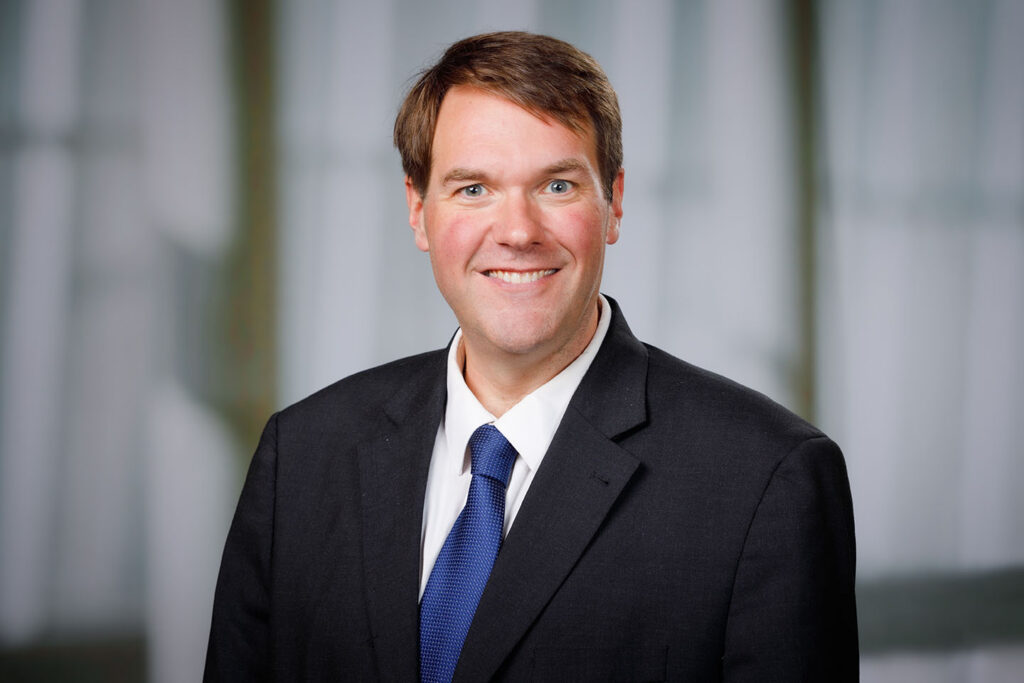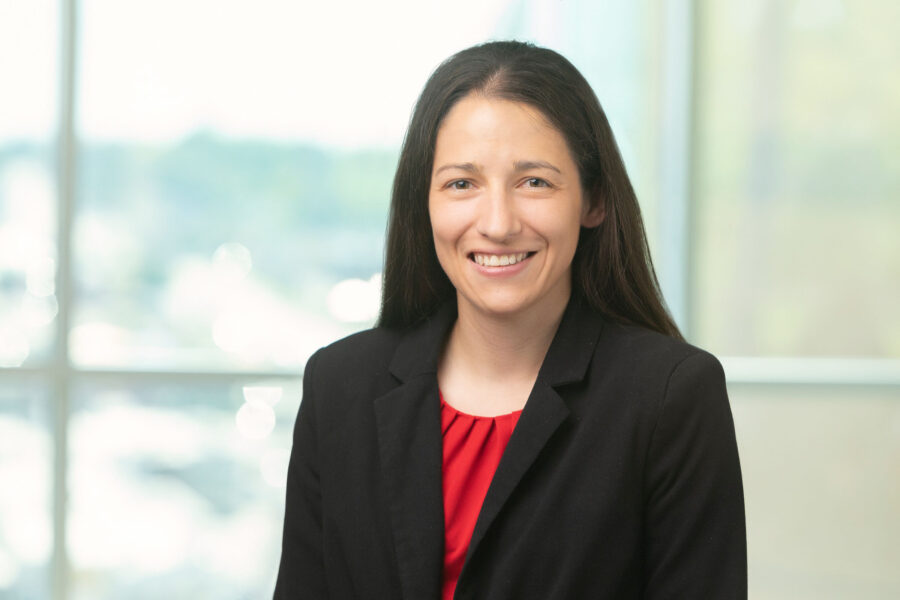Approximately 80 students in this year’s entering class at the UNMC College of Medicine – about 60% of the total – will arrive at UNMC a week early to take part in a new program designed to help them transition from college to medical school.
The UNMC College of Medicine Academic Preparedness Program is designed to help incoming students recognize and prepare for common pitfalls that can plague first-year medical students.
The program was piloted with a small number of participants last year, said director Aleisha Nabower, MD, and this year was offered to the entire incoming med school class on a voluntary basis.
Dr. Nabower is one of the college’s academic advisers specifically tasked with helping UNMC’s medical students make their way through to graduation and residency.
Newly admitted medical students are, by definition, outstanding scholars, Dr. Nabower said. Nevertheless, all enter with different strengths and weaknesses, as well as varying degrees of effectiveness in areas such as time management skills, different types of study skills and other challenges they will face as first-year medical students.
“Historically, what has happened is people start struggling, maybe just with the volume of material they’re getting or with a new study technique, and the burdens add up.”
High-achieving students, Dr. Nabower said, may not be used to struggling or seeking help.
“The goal of this weeklong program is to expose them to some of the best practices and techniques to be successful in medical school,” she said.

The transition from college to medical school is one of the most challenging that physicians face in their career, said Geoffery Talmon, MD, associate dean of medical education.
“This experience will help our incoming future colleagues better manage that transition and hit the ground running,” Dr. Talmon said.
The weeklong program culminates with a quiz based on UNMC College of Medicine course material that, although it doesn’t count for a grade, gives participants a glimpse of the type of questions they will see and the study methods needed to answer them.
Students then will take the mock quiz into a meeting with their academic advisers to explore strengths and weaknesses and receive coaching designed to develop an effective study plan for medical school.
“The students will learn how tests are built in medical school,” Dr. Nabower said. “Medical school questions are not first-order or second-order questions; you need to link multiple things together to answer correctly. The quiz gives them a sense of the depth at which they’re going to need to know the material.”
The college’s team of academic advisers also will be graded at the end of the weeklong “boot camp.”
“We’ll have the students do evaluations at the end of the program and again after their first block of medical school is completed,” Dr. Nabower said. “We’re hoping to see a decrease in anxiety for the students during that real first week – it can be a struggle as you’re trying to figure things out. Also, we hope to see fewer people struggling or that students can adapt more easily.”
The program also includes a wellness and mindfulness piece.
“We’ve heard from some students, especially if they don’t come from within the state, that there can be a sense of isolation,” Dr. Nabower said. “So, we’ve also implemented some different mingling sessions to help them get to know their classmates, and our wellness officers are helping us with those activities.”
Struggling to keep up can be a confidence killer, Dr. Nabower said.
“These are all the top of the top students, and this is the point where they all can’t be No. 1 anymore,” she said. “We try to normalize that from day one — medical school is hard.
She tells students: “We’re going to really push you. There is no question that you are good enough to be here. You’ve already proven that. But everybody finds different pain points along the way, and it’s okay to reach out. It’s okay to struggle.”
Support teams such as academic advisers, student affairs’ deans, tutors and the wellness team create a network around the medical students, she said, and the new program is part of that network.
“Historically, we’ve taken a reactive approach – students struggle, and we help them address it,” she said. “In this program, we are trying a more proactive approach. We hope to give students the tools to adapt, as well as make ‘starting medical school’ a little less stressful.”
The program’s resources also will be available to students who were unable to attend, she said, through videos that will address the same identified “pain point” areas.
Students arrive for the UNMC College of Medicine Academic Preparedness Program on Aug. 11.
